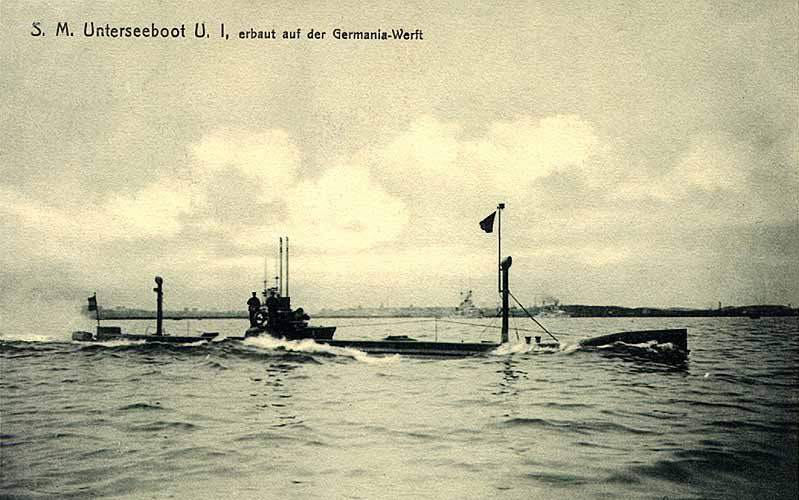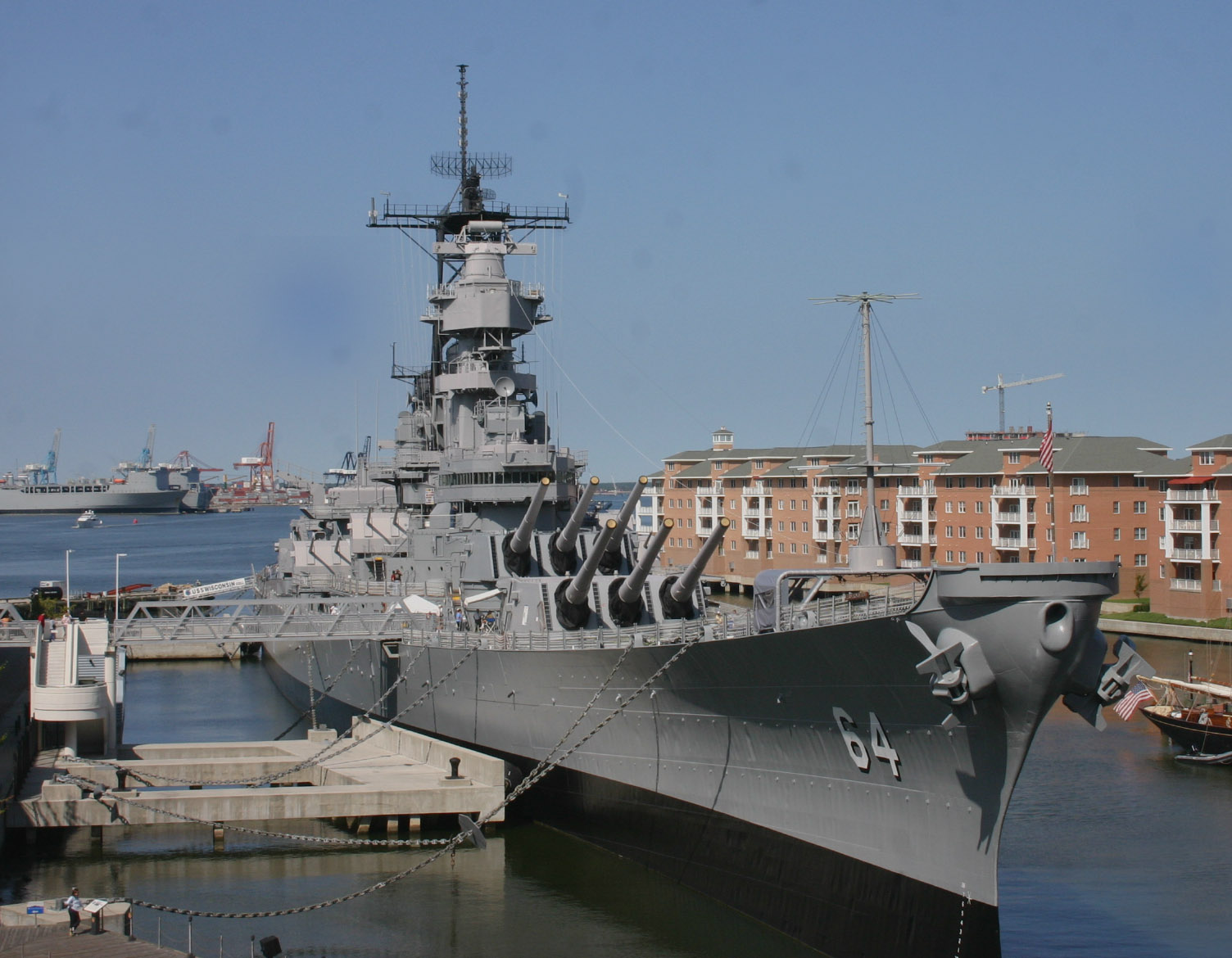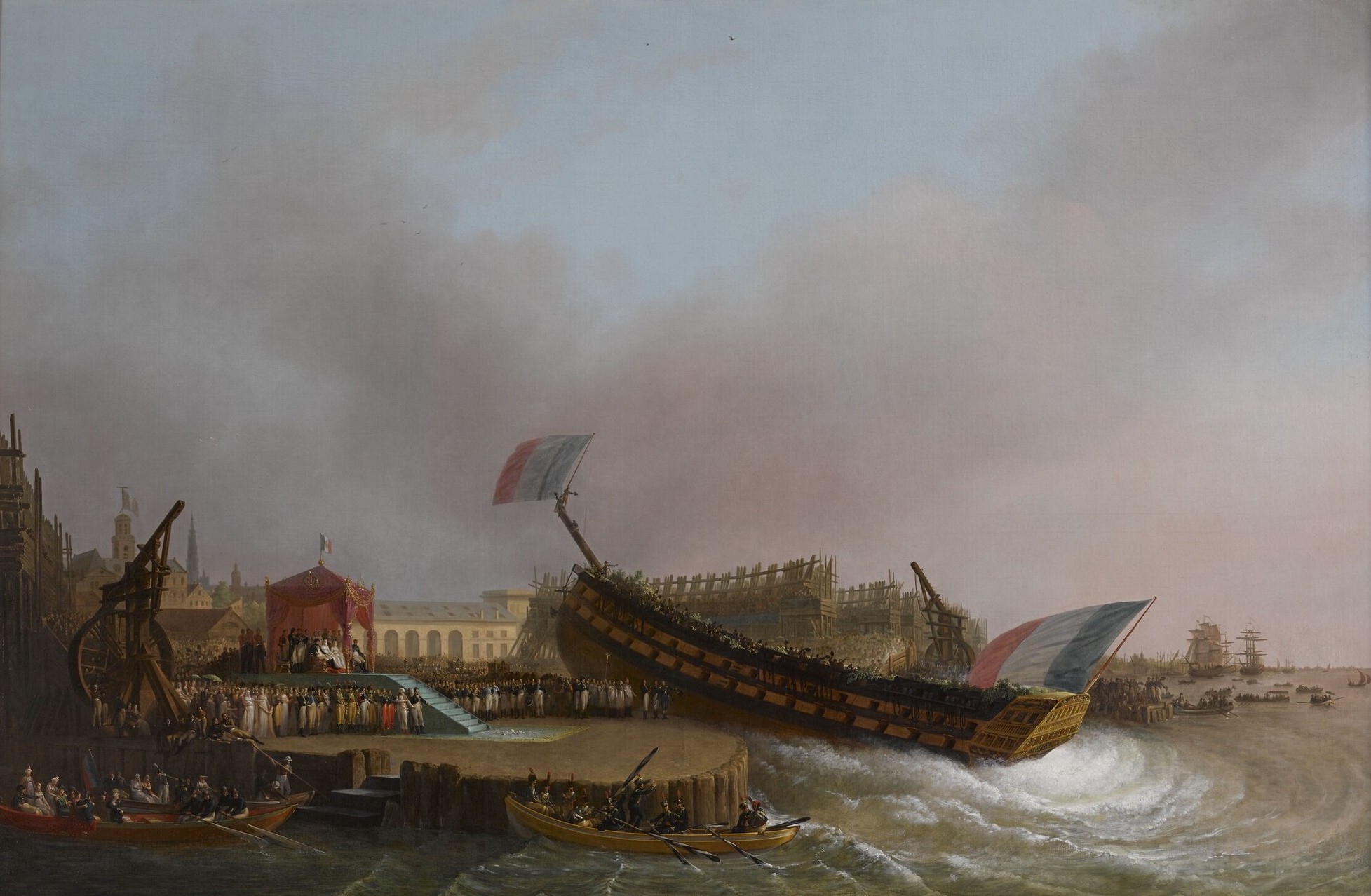|
SM U-2 (Germany)
SM ''U-2'' was a German U-boat built for the Imperial German Navy. Only one of the type, sometimes called German Type U 2 submarine, was built. ''U-2'' was ordered from Kaiserliche Werft of Danzig on 4 March 1906, launched on 18 June 1908, and commissioned into the Imperial German Navy on 18 July 1908. She conducted no war patrols and spent World War I as a training platform. After Germany's surrender, she was decommissioned on 19 February 1919 and sold for shipbreaking Ship breaking (also known as ship recycling, ship demolition, ship scrapping, ship dismantling, or ship cracking) is a type of ship disposal involving the breaking up of ships either as a source of parts, which can be sold for re-use, or for ... to Stinnes on 3 February 1920. Citations References * * *Robert C. Stern. ''Battle Beneath the Waves: U-boats at War'', Cassell Military Paperbacks, 2002. External links * Type U 2 submarines U-boats commissioned in 1908 World War I submarines ... [...More Info...] [...Related Items...] OR: [Wikipedia] [Google] [Baidu] |
German Empire
The German Empire (),; ; World Book, Inc. ''The World Book dictionary, Volume 1''. World Book, Inc., 2003. p. 572. States that Deutsches Reich translates as "German Realm" and was a former official name of Germany. also referred to as Imperial Germany, the Second Reich or simply Germany, was the period of the German Reich; . from the unification of Germany in 1871 until the German revolution of 1918–1919, November Revolution in 1918, when the German Reich changed its form of government from a monarchy to a Weimar Republic, republic. The German Empire consisted of States of the German Empire, 25 states, each with its own nobility: four constituent Monarchy, kingdoms, six Grand duchy, grand duchies, five Duchy, duchies (six before 1876), seven Principality, principalities, three Free imperial city, free Hanseatic League, Hanseatic City-state, cities, and Alsace–Lorraine, one imperial territory. While Prussia was one of four kingdoms in the realm, it contained about two-thirds ... [...More Info...] [...Related Items...] OR: [Wikipedia] [Google] [Baidu] |
U-boat
U-boats are Submarine#Military, naval submarines operated by Germany, including during the World War I, First and Second World Wars. The term is an Anglicization#Loanwords, anglicized form of the German word , a shortening of (), though the German term refers to any submarine. Austro-Hungarian Navy submarines were also known as U-boats. U-boats are most known for their unrestricted submarine warfare in both world wars, trying to Commerce raiding, disrupt merchant traffic towards the UK and force the UK out of the war. In World War I, Germany intermittently waged unrestricted submarine warfare against the United Kingdom, UK: a first campaign in 1915 was abandoned after strong protests from the US but in 1917 the Germans, facing deadlock on the continent, saw no other option than to resume the campaign in February 1917. The renewed campaign failed to achieve its goal mainly because of the introduction of Convoys in World War I, convoys. Instead the campaign ensured final defeat ... [...More Info...] [...Related Items...] OR: [Wikipedia] [Google] [Baidu] |
World War I Submarines Of Germany
The world is the totality of entities, the whole of reality, or everything that exists. The nature of the world has been conceptualized differently in different fields. Some conceptions see the world as unique, while others talk of a "plurality of worlds". Some treat the world as one simple object, while others analyze the world as a complex made up of parts. In scientific cosmology, the world or universe is commonly defined as "the totality of all space and time; all that is, has been, and will be". Theories of modality talk of possible worlds as complete and consistent ways how things could have been. Phenomenology, starting from the horizon of co-given objects present in the periphery of every experience, defines the world as the biggest horizon, or the "horizon of all horizons". In philosophy of mind, the world is contrasted with the mind as that which is represented by the mind. Theology conceptualizes the world in relation to God, for example, as God's creation, ... [...More Info...] [...Related Items...] OR: [Wikipedia] [Google] [Baidu] |
U-boats Commissioned In 1908
U-boats are naval submarines operated by Germany, including during the First and Second World Wars. The term is an anglicized form of the German word , a shortening of (), though the German term refers to any submarine. Austro-Hungarian Navy submarines were also known as U-boats. U-boats are most known for their unrestricted submarine warfare in both world wars, trying to disrupt merchant traffic towards the UK and force the UK out of the war. In World War I, Germany intermittently waged unrestricted submarine warfare against the UK: a first campaign in 1915 was abandoned after strong protests from the US but in 1917 the Germans, facing deadlock on the continent, saw no other option than to resume the campaign in February 1917. The renewed campaign failed to achieve its goal mainly because of the introduction of convoys. Instead the campaign ensured final defeat as the campaign was a contributing factor to the entry of the US in the First World War. In World War II, Karl ... [...More Info...] [...Related Items...] OR: [Wikipedia] [Google] [Baidu] |
Type U 2 Submarines
Type may refer to: Science and technology Computing * Typing, producing text via a keyboard, typewriter, etc. * Data type, collection of values used for computations. * File type * TYPE (DOS command), a command to display contents of a file. * Type (Unix), a command in POSIX shells that gives information about commands. * Type safety, the extent to which a programming language discourages or prevents type errors. * Type system, defines a programming language's response to data types. Mathematics * Type (model theory) * Type theory, basis for the study of type systems * Arity or type, the number of operands a function takes * Type, any proposition or set in the intuitionistic type theory * Type, of an entire function ** Exponential type Biology * Type (biology), which fixes a scientific name to a taxon * Dog type, categorization by use or function of domestic dogs Lettering * Type is a design concept for lettering used in typography which helped bring about modern textual printi ... [...More Info...] [...Related Items...] OR: [Wikipedia] [Google] [Baidu] |
Bernard & Graefe
Bernard & Graefe is a German book publisher, which since 1991 has been part of the Mönch publishing group. It was founded in 1918 in Königsberg Königsberg (; ; ; ; ; ; , ) is the historic Germany, German and Prussian name of the city now called Kaliningrad, Russia. The city was founded in 1255 on the site of the small Old Prussians, Old Prussian settlement ''Twangste'' by the Teuton ..., and publishes a range of non-fiction titles including "the most universally respected books on the German Federal Armed Forces". The parent Monch group specialises in defence and national security topics. References Book publishing companies of Germany Publishing companies established in 1918 {{Publishing-company-stub ... [...More Info...] [...Related Items...] OR: [Wikipedia] [Google] [Baidu] |
Ship Decommissioning
Ship commissioning is the act or ceremony of placing a ship in active service and may be regarded as a particular application of the general concepts and practices of project commissioning. The term is most commonly applied to placing a warship in active duty with its country's military forces. The ceremonies involved are often rooted in centuries-old naval tradition. Ship naming and launching endow a ship hull with her identity, but many milestones remain before it is completed and considered ready to be designated a commissioned ship. The engineering plant, weapon and electronic systems, galley, and other equipment required to transform the new hull into an operating and habitable warship are installed and tested. The prospective commanding officer, ship's officers, the petty officers, and seamen who will form the crew report for training and familiarization with their new ship. Before commissioning, the new ship undergoes sea trials to identify any deficiencies needing correc ... [...More Info...] [...Related Items...] OR: [Wikipedia] [Google] [Baidu] |
World War I
World War I or the First World War (28 July 1914 – 11 November 1918), also known as the Great War, was a World war, global conflict between two coalitions: the Allies of World War I, Allies (or Entente) and the Central Powers. Fighting took place mainly in European theatre of World War I, Europe and the Middle Eastern theatre of World War I, Middle East, as well as in parts of African theatre of World War I, Africa and the Asian and Pacific theatre of World War I, Asia-Pacific, and in Europe was characterised by trench warfare; the widespread use of Artillery of World War I, artillery, machine guns, and Chemical weapons in World War I, chemical weapons (gas); and the introductions of Tanks in World War I, tanks and Aviation in World War I, aircraft. World War I was one of the List of wars by death toll, deadliest conflicts in history, resulting in an estimated World War I casualties, 10 million military dead and more than 20 million wounded, plus some 10 million civilian de ... [...More Info...] [...Related Items...] OR: [Wikipedia] [Google] [Baidu] |
Ship Commissioning
Ship commissioning is the act or ceremony of placing a ship in active service and may be regarded as a particular application of the general concepts and practices of project commissioning. The term is most commonly applied to placing a warship in active duty with its country's military forces. The ceremonies involved are often rooted in centuries-old naval tradition. Ship naming and launching endow a ship hull with her identity, but many milestones remain before it is completed and considered ready to be designated a commissioned ship. The engineering plant, weapon and Electronics, electronic systems, Galley (kitchen), galley, and other equipment required to transform the new hull into an operating and habitable warship are installed and tested. The prospective commanding officer, ship's officers, the petty officers, and seamen who will form the crew report for training and familiarization with their new ship. Before commissioning, the new ship undergoes sea trials to identify a ... [...More Info...] [...Related Items...] OR: [Wikipedia] [Google] [Baidu] |
Ceremonial Ship Launching
Ceremonial ship launching involves the performing of ceremonies associated with the process of transferring a vessel to the water. It is a nautical tradition in many cultures, dating back millennia, to accompany the physical process with ceremonies which have been observed as public celebration and a solemn blessing, usually but not always, in association with the launch itself. Ship launching imposes stresses on the ship not met during normal operation and in addition to the size and weight of the vessel represents a considerable engineering challenge as well as a public spectacle. The process also involves Sailors' superstitions, many traditions intended to invite good luck, such as baptism#Boats and ships, christening by breaking a sacrificial bottle of champagne over the bow (ship), bow as the ship is named aloud and launched. Methods There are three principal methods of conveying a new ship from building site to water, only two of which are called "launching". The ol ... [...More Info...] [...Related Items...] OR: [Wikipedia] [Google] [Baidu] |
Imperial German Navy
The Imperial German Navy or the ''Kaiserliche Marine'' (Imperial Navy) was the navy of the German Empire, which existed between 1871 and 1919. It grew out of the small Prussian Navy (from 1867 the North German Federal Navy), which was mainly for coast defence. Wilhelm II, Kaiser Wilhelm II greatly expanded the navy. The key leader was Admiral Alfred von Tirpitz, who greatly expanded the size and quality of the navy, while adopting the Command of the sea, sea power theories of American strategist Alfred Thayer Mahan. The result was a Anglo-German naval arms race, naval arms race with Britain, as the German navy grew to become one of the greatest maritime forces in the world, second only to the Royal Navy. The German surface navy proved ineffective during the First World War; its only major engagement, the Battle of Jutland, was a draw, but it kept the surface fleet largely in port for the rest of the war. The submarine fleet was greatly expanded and threatened the British supply s ... [...More Info...] [...Related Items...] OR: [Wikipedia] [Google] [Baidu] |






